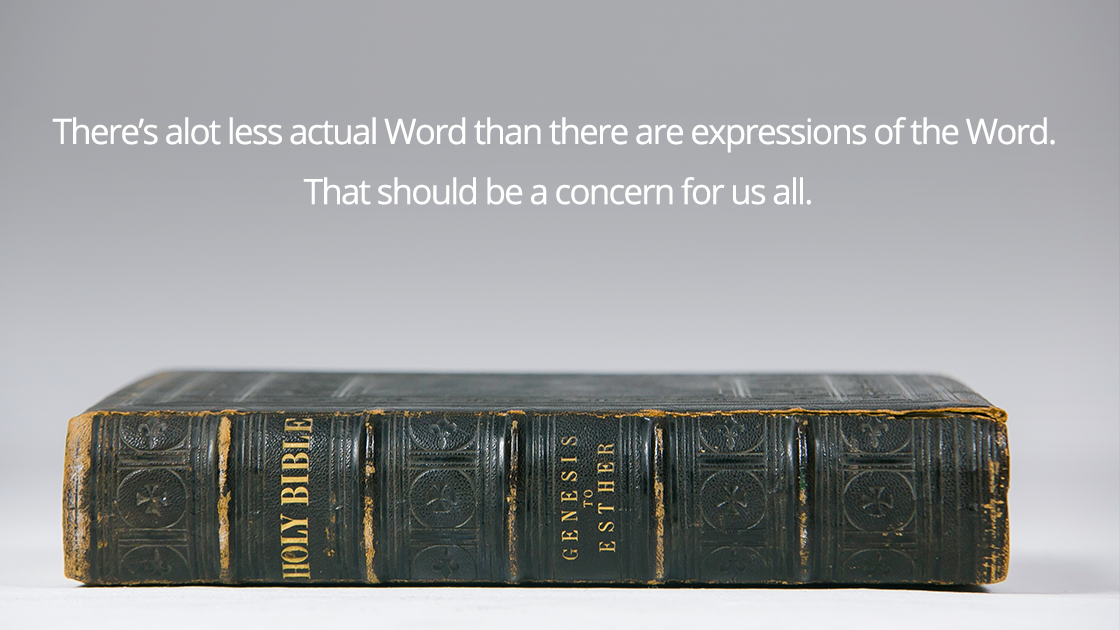I am sitting in a coffee shop thinking about my worship experiences over the last several years. I have been blessed to be involved with many churches and therefore, a healthy number of worship services across all the major demographic areas. While there are many people talking about the role of the arts, especially music, in worship, there is one area that no one seems concerned about: Scripture. It is almost like it is assumed that since there is a sermon then there must be Scripture. Actually, in my experience, it is a shocking fact that while there may be a lengthy sermon, long song sets, elaborate prayers and other “acts” of worship, there is considerably less actual Word than there are of expressions of the Word. That should be a concern for us all. Here are 4 reasons we need to read more Scripture when we gather for worship.
4 Reasons Why Your Worship Service Needs More Scripture
There may be a lengthy sermon, elaborate prayers and “acts” of worship, but less actual Word than expressions of it. Click To TweetWe, as the Gathered Body of Christ, need to hear more of God’s Word than of our own.
In Nehemiah 8, the people gathered and called for the reading of the Word. The priests read the Word for at least 6 hours before the preaching began. How much Scripture is actually read in your worship service? Looking at worship in the history of the church, especially in the services built around the Lectionary model, there are no less than 4 readings of Scripture in each service. Readings from the Old Testament, a Psalm, and then selections from the Epistles and a Gospel reading is the common arrangement. Each of these readings is built on what theologians call a which gives the reading the context of a complete story. Lastly, these readings are related in some way, usually around a theme or point of time in the Christian calendar. The sermon is then based on one or more of these Scriptural selections. Now, if you add all of this Scripture up, this still comes to around only 25% of the Bible over the course of 3 years. However, if your church uses less than 4 complete readings a week, think about how much (little?) Scripture your congregation actually hears over the course of time. How can we claim to “hear from God” if we don’t truly hear the Word of God in worship?
Two fancy words: Exegesis VS Eisegesis
These two words should be very important to every person in the church. The first word, Exegetical, means reading and interpreting Scripture based on a variety of approaches including context, historical data, original language, etc. Most importantly, this technique requires multiple verses to set up a complete picture of the meaning of the text. The second word, Eisegesis, basically refers to deciding what we think and then reading that thought into Scripture. Eisegesis is much easier to do when there is less text, especially for context and this makes it very suspect when it comes to the true meaning of the text. If we were to read a broader selection of Scripture in our worship services, we would have a fuller picture (context) by which to determine God’s meaning. A whole lot of individual verses are rarely as compelling (and requires much less actual interpretive skill) as one complete contextual reading that is well taught and developed.
Time spent in the Word is time spent in God’s very presence.
I ask a lot of people why they go to worship and one of the more popular “spiritual” answers is that we want to spend time in God’s presence. I know that when I visit my loved ones, especially those patriarchs and matriarchs of my family line, I spend most of my time listening to their stories and learning from their wisdom. Later, when I am challenged, it is often those stories that I soaked up at their feet that sustain me through my difficulties. Whose feet are better to sit at and learn from than those of God? There are so many scenes in the Bible of people sitting at the feet of Jesus and learning from His words. And there are so many passages about worship itself in the Bible! We should really look at our worship and determine if we are the ones doing all of the talking.
When God speaks, we listen (usually)
I know that, as a parent, I was always trying to get my children’s attention when I wanted them to really hear what I had to say. I would usually have to stop everything, sit them down, ask them to be quiet and listen to me. I wonder if God ever feels that way about our worship services. Harkening back to the theme that is running throughout this article, basically, we talk too much. We like the sound of our own voices, whether in singing, preaching, praying, etc. We get caught up in our actions of worship, and that is not a bad thing. We should be active in worship. However, listening can be an action as well. I can think of no better way to quiet our collective voice than to impose the voice of God in our worship. Reading more Scripture increases the opportunity to hear more from God and practice the spiritual discipline of listening.
I believe we should not find it challenging to listen to what Scripture has to say when we worship. By that, I don’t just mean doing what Scripture says, but by hearing the Word above our own. Sure, we love to tell God what we think, how much we love, expressing our worship, but shouldn’t this be a two-way conversation?

